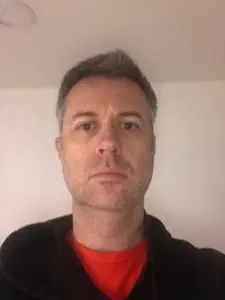

Former Detroit Red Wings defenseman Jiri Fischer went through an eerily similar episode as Rich Peverley in 2005. In this interview, he reflects on the mystery and tragedy of heart ailments.
Jiri Fischer was monitoring last night's scores around the NHL when he first heard about Rich Peverley collapsing on the Dallas Stars bench in a home game against Columbus. If anybody knew what Peverley was experiencing, it was Fischer. Now Detroit's director of player development, Fischer was an emerging defenseman with the Red Wings when he collapsed on the bench, suffering a career-ending cardiac arrest in 2005 that opened the hockey world's eyes to the horrific possibilities of heart ailments in elite athletes.
As with Fischer, Peverley received top-notch emergency care from medical staff at the rink and is now resting in hospital.
"I didn't know what to think at first," Fischer said. "Just sad, then really thankful that they helped Rich survive. It was impressive."
One of the frustrating things about these ailments is how mysterious they can be.
"It's a disaster when it happens," Fischer said. "There are so many heart conditions and so many are in a grey area: Is it genetic? It is going to change? How does it behave?"
It's too early to speculate on Peverley's future in the NHL, but there will be no denying the fact everything will be different for the Stanley Cup-winning right winger as life goes on. Fischer has begun his second career as an NHL executive and was also an assistant coach with the Czech Republic's world junior team in the past, but that doesn't mean everything is back to normal.
"It changes everything," he said. "Every time I see my parents, they look at me differently. It's tough."
When asked if he had any advice for Peverley once the Dallas forward gets out of the hospital, Fischer offered the following:
"This is the reality," he said. "It's life-changing, it's not easy, but cardiac arrest is just the start. Now it's about restarting your life. Having a partner…his wife must be real strong. You will not be the same as before, but that does not mean it will all be bad. I have two sons and one was born 10 months after my cardiac arrest – so you do the math."
While the hockey world waits for an update on Peverley, Fischer continues to keep an eye on developments in the medical industry and work with the Red Wings, who are pushing to get into the post-season for the 23rd straight time. He has not let his past keep him down.
"Tragedy is always the start," he said. "Now it's up to the survivors."


